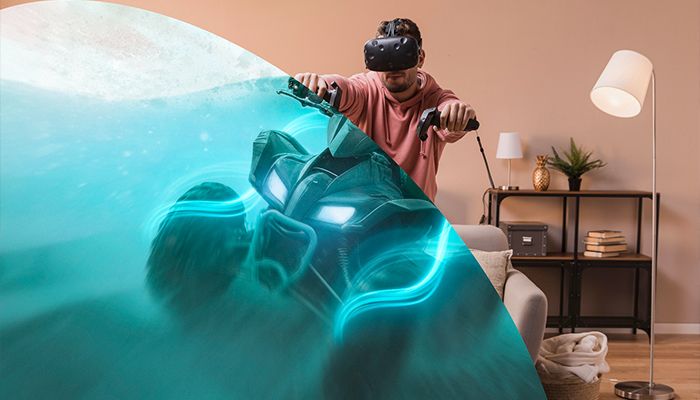Virtual reality has been transforming the gaming experience. However, VR is not a new thing. Moreover, it has been there for several decades. It has gained momentum over the past few years. Gaming hotshots like Nintendo, Sega, and more have simply transitioned the overall experience. Over the years, there has been absolute growth, especially when it comes to VR headsets becoming more prominent in the market.
The gaming industry is expected to grow exponentially. The future of VR gaming holds a lot of potential. Meanwhile, other industries, including healthcare, education, and architecture, are now adopting the technology.
The rise of VR

The rise of virtual reality (VR) has been nothing short of revolutionary. Over the past decade, VR 3D modeling technology has evolved from a niche curiosity to a mainstream phenomenon, captivating audiences with its ability to transport users to entirely new worlds. Advancements in hardware, such as more affordable and powerful VR headsets, have made this once-futuristic technology accessible to a broader audience.
With a growing library of immersive titles that transform the line between reality and fantasy, gaming has been at the forefront of the VR revolution. Beyond gaming, VR 3D modeling has the potential to transform the gaming industry. As the technology continues to grow and new innovations emerge, the future of VR seems boundless, offering a tantalizing glimpse into a world where the boundaries between the digital and physical realms become increasingly blurred.
VR 3D modeling for the gaming industry

Users' adoption of virtual reality gaming, game development, and hardware advancements all contribute to its rapid expansion. With a rise in demand for realistic simulations, social VR interactions, and competitive multiplayer games, gamers are increasingly embracing the immersive experiences provided by VR.
The industry is also witnessing increased investment in VR gaming content, both from established developers and indie studios, fostering a rich and diverse VR gaming ecosystem. As VR 3D modeling technology continues to mature, these research results imply that the gaming industry will undergo a transformation in which VR will play a crucial role in shaping the future of interactive entertainment.
The gaming sector is evolving rapidly, and here are some captivating games that have provided an immersive experience on which we would like to focus.
Superhot VR
The VR experience of this game with advanced features utilizes every part of VR headsets. It offers a unique, time-based combat system. The experience totally depends on the movement of the player. Besides, the smart visuals and strategies set it apart from the total gaming experience.
Half-Life: Alyx
Half-life Alyx is a highly acclaimed VR title set. Its immersive storytelling and compelling gaming experience have garnered a huge fan base. Moreover, it was one of the first virtual reality games, offering a unique set of experiences.
Resident Evil 7: Biohazard
The game was already popular due to its refined visual experience. The integration of VR experiences has only been fine-tuned to a realistic experience. It took the experience to the next level with the suspenseful gameplay.
The future of VR gaming

The future of virtual reality games holds tremendous promise as technology continues to advance at an unprecedented pace. We can anticipate a convergence of factors that will redefine the gaming experience as we know it. More powerful and affordable VR hardware will become increasingly accessible, attracting a broader audience.
The popularity of VR games has led more game development companies to embrace virtual reality 3D modeling. One must equally understand that virtual reality comes with a complex set of challenges. The integration of AI and haptic feedback technologies will elevate immersion to new heights, making virtual reality gaming an even more visceral and sensory-rich experience.
While these trends rise, the future of VR games promises to be a thrilling journey into uncharted realms of entertainment.






